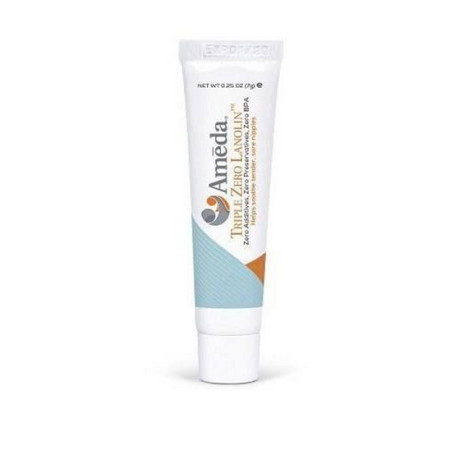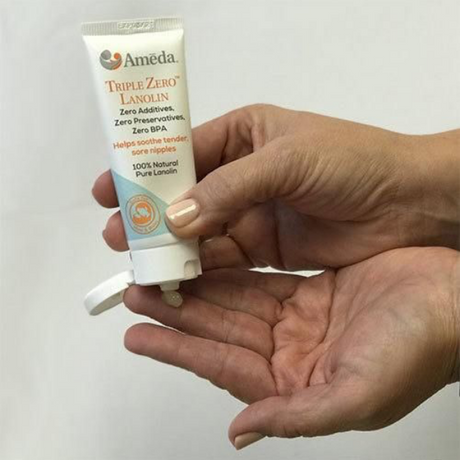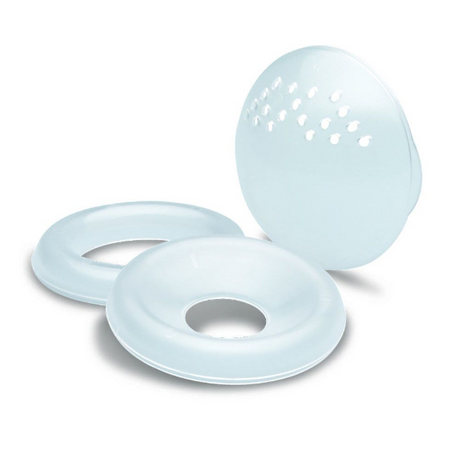Published:
Baby’s first tooth is an exciting milestone to brag about on social media and write about in a baby book.
But when you catch a glimpse of that pearly white jutting out of your baby’s gums, it may make you nervous. What if breastfeeding becomes painful? What if your baby bites you every time he wants some nourishment? Are your breastfeeding days numbered?
Fortunately, the presence of a tooth (or teeth) won’t interfere with your breastfeeding goals. In fact, not only is it acceptable to breastfeed your baby once he starts getting teeth, it’s encouraged: The American Academy of Pediatrics recommends that moms breastfeed their babies for at least one year, and most babies start getting their teeth when they’re around 6 months old. Some moms breastfeed for much longer than a year without incident, and their children may have entire mouths full of teeth!
If you plan to keep breastfeeding once your baby starts getting teeth, here’s what you need to know:
Biting isn’t possible while breastfeeding
If you’re worried that your baby could bite your sensitive nipple, you may have forgotten that babies are interested in much more of your breast than just the nipple. They generally take the entire areola into their mouths. And when your baby has so much of your breast tissue in his mouth, it’s not possible for him to clamp down on your nipple.
The mechanics of breastfeeding make it impossible for a baby to bite you when he’s actively nursing. When he’s latched onto your breast, he extends his tongue outward, over his lower gums, which protects you from any teeth that may be present. With his wide-open mouth, you shouldn’t notice any upper teeth, either. If you do begin to feel the presence of teeth on your breast once they start coming in, shifting to a new position and encouraging a wide-open mouth and a big latch can help.
Nipping may happen post-feeding
As babies grow, they try new activities to better understand the world around them and how their bodies work. Some babies may be curious to see what happens if they give your breast a little nip when they’re feeling alert and playful. This almost always happens after they’re done feeding, when they still have access to your breast. A hungry baby would be too absorbed with getting breast milk to do this.
When a baby bites or nips, it can be a quick, painful surprise. But if it happens, you can quickly teach your baby not to do it again. As soon as your baby nips, place your finger in the corner of his mouth to break the suction seal that keeps your breast tissue in his mouth. Quickly extract your breast, look your baby in the eye and calmly tell him “No” or “No biting.” Don’t offer your breast again right away.
It’s important to be firm but calm and unemotional: Don’t yell the “No” or put too much feeling into your reaction. Your instinct may be to yelp in pain or surprise, but making too big of a fuss can backfire. If your baby connects the nip with your outburst, he may try to nip again to try to arouse the same reaction from you. Try to be as firm and boring as possible with your “No.”
After you’re been nipped or bitten, pay close attention when your baby finishes his feedings so your breast tissue doesn’t linger in his mouth. Once he slows down and is no longer rhythmically sucking and swallowing, place your finger in the corner of his mouth to break the seal and remove your breast right away. He can’t nip or bite if he doesn’t have access to you. Fortunately, this is usually a short-lived phase, if it happens at all.

Breastfeeding soothes a teething baby
When your baby is teething, he may be fussier than usual. Understandably so: It hurts when sharp teeth are trying to make their way through the gums. During the teething period, your baby may rely upon breastfeeding more than ever as soothing comfort when he’s in pain. Your breast milk and your comforting closeness should serve as a sweet distraction.
An actively teething baby may want to bite down on something firm to help ease his discomfort. You can offer your baby a cool (not frozen) rubber teether or massage his gums with a clean finger before or after you breastfeed. This may help to discourage him from trying to bite or nip.
DISCLAIMER:
Ameda strives to present you with accurate and useful breastfeeding information. This article may contain information and ideas that are not necessarily the views of Ameda. It does not constitute medical advice. If you have any questions please contact your healthcare professional.






